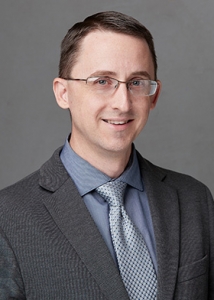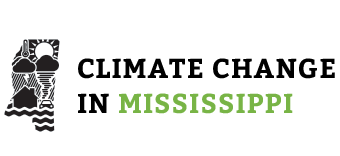‘Disconnect’ from Nature Comes with a Cost
By Danielle Angelo
Duane McKenna, William Hill Professor of Biology at the University of Memphis, has spent the majority of his life studying how humans have altered the natural world, and has discovered that our impact on nature has, in turn, affected our health. The proposition is this: That humans are no longer as connected to nature has impacted our overall well-being, he believes.
“We aren’t entertained by nature in the ways we used to be, largely because the availability of devices that just didn’t used to occupy or energy and time,” McKenna said. “As we become less connected with nature, there is a lot of correlated health and psychological impacts. We can’t tie a lot of these directly to that specific thing, but I think we all understand that when you drive through a neighborhood and you don’t see children outside, not only are they not learning about things outside, like the forest they might be playing in or the insects around them, but also it impacts their health.”
He believes that since nature is less familiar to us, it is not easy for humans to see the direct impact of their decisions.
“The reason we don’t really necessarily immediately experience climate change, is because on one hand we are all pretty wealthy,” McKenna said. “You and I can sit in a climate controlled room and talk without being impacted by what’s happening outside the window. We are able to purchase and otherwise get whatever we need, and that buffers our society from the impacts.”
Even though we may not realize it, there have been large changes in how and what we eat. Part of this, McKenna said, is because there is a lack of access to efficient pollination and water used for irrigation. The effect is sometimes too subtle to notice.
“When you buy something that decreases, even in a very small way, water quality, air quality or soil quality you aren’t paying for those impacts typically,” McKenna said. “So, sadly, those ecosystem services that nature provides we don’t quantify, nor do we encounter in the products and purchases that we make. We are having these impacts that we are not paying for, and frankly the only people paying for them are those who come after us who won’t have those same ecosystem services.”
One example is how we can no longer eat fish directly out of waterways without a risk of metal poisoning, and how we can no longer find potable water in the majority of our waterways. All of these things are impacting our health without us even realizing it.
Nature is resilient, and can recover — but not if the speed of loss is greater than the speed of recovery. “Our footprint on this earth currently as humans is more than one earth,” McKenna said. “What that means is that for every year that passes, air quality, water quality, soil quality and quality of nature, has to decline, because if our impact ecologically is greater than one, the only way that we can continue is by decreasing the quality of those resources that we all rely on.”
McKenna does not believe all hope is lost. He thinks the main thing people need and want to start creating a positive impact on the planet is information.
“Was this product we’re buying grown in an area that should be in rainforests? Is it regulated in such a way that at least the property that was converted for that crop is preserving the richest habitats that were once there,” McKenna said. “We want to know if the spray paint we’re using is going to release chemicals into the air that are going to be there for a long time, or if they are going to come down in rain and end up in our ground water. We aren’t given answers to that stuff.”
Good decisions are important, and McKenna said they come by educating ourselves and advocating for impact-related information.
“I would love to go into a store and see three choices and instead of just looking at the packaging as pretty or interesting, I would like to be able to know what impact this has on the Earth,” McKenna said. “If you see that it is really bad for air quality then you make a choice on what you want your own impact to be. I think we really need information, and that we should expect it.”
Science shows all life forms, plant and animal, are adapted, at least in large measure, to their surroundings. As the climate changes, people will encounter challenges to their well-being, including their physical and mental health. Once we have information and awareness, we can start to make informed decisions about our health and the impact we are creating, and ultimately make a better world for future generations.
Dr. Duane McKenna

Ph.D. Organismic & Evolutionary Biology, Harvard University; Post-Doctoral Fellow, Harvard University Museum of Comparative Zoology.
Member of the Association for Tropical Biology and Conservation, Entomological Society of America, Society for the Study of Evolution, Coleopterist’s Society, and Council on Undergraduate Research.
